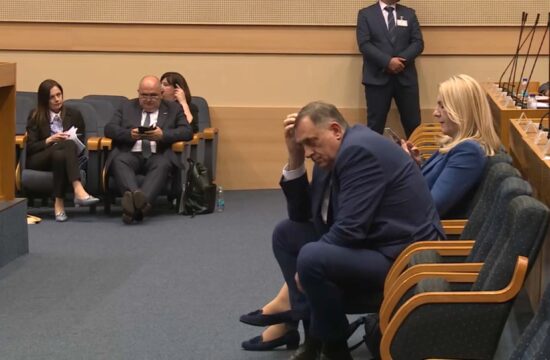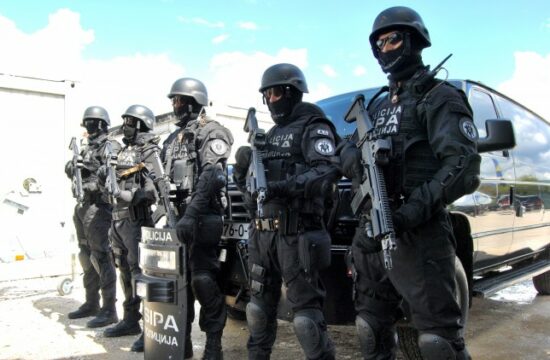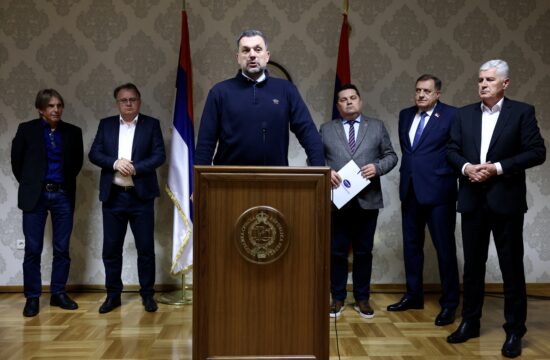
The introduction of legislation aimed to tackle fake news which creates panic and disorder during the COVID-19 crisis is understandable but it should not impede media freedom and efforts to inform citizens on the topic, OSCE Representative on Media Freedom, Harlem Désir, and the Head of the OSCE Mission to Bosnia and Herzegovina, Kathleen Kavalec, said in a joint statement on Monday.
The OSCE officials referred to a decree Bosnia’s Serb-majority region, Republika Srpska (RS), issued last week which introduced “punitive measures, including fines, for spreading “fake news” about the virus in the media and on social networks” during the state of emergency.
According to media reports, the Brcko District adopted similar measures.
They also mentioned that the Interior Minister of the other semi-autonomous region, the Federation (FBiH), proposed the introduction of a ban on ‘fake news’ regarding the virus.
“I fully understand the aim of tackling the dissemination of false information which creates panic and disorder during this health crisis, but the concerned legislation should not impede the free work of journalists or their ability to report on the pandemic and to provide information necessary to the public. The press is an indispensable ally in the provision of important information to citizens and in the fight against ‘fake news’,” Desir said.
The joint statement said that the OSCE Mission in Bosnia is not familiar with all the details regarding the measures but that the best response to the problem is “for authorities to communicate frequently with its citizens so that reliable information is provided to them about the measures taken, the rights and obligations of persons and businesses, and how to behave during these challenging times.”
“Censorship and limiting freedom of expression are not helpful and can undermine trust in institutions,” it said.
Desir and Kavalec referred to the joint statement published last week by the Representative together with David Kaye, UN Special Rapporteur on the promotion and protection of the right to freedom of opinion and expression and Edison Lanza, IACHR Special Rapporteur for Freedom of Expression, which stresses that: “It is essential that governments and internet companies address disinformation in the first instance by themselves providing reliable information. That may come in the form of robust public messaging, support for public service announcements, and emergency support for public broadcasting and local journalism (for instance, through government health advertisements).”




